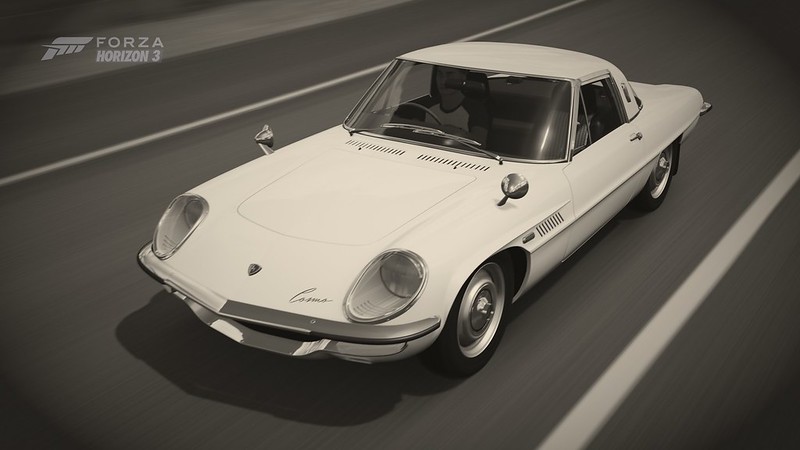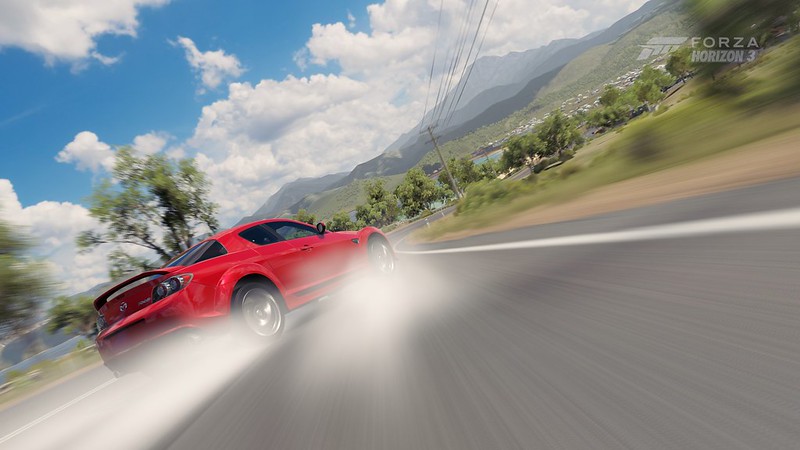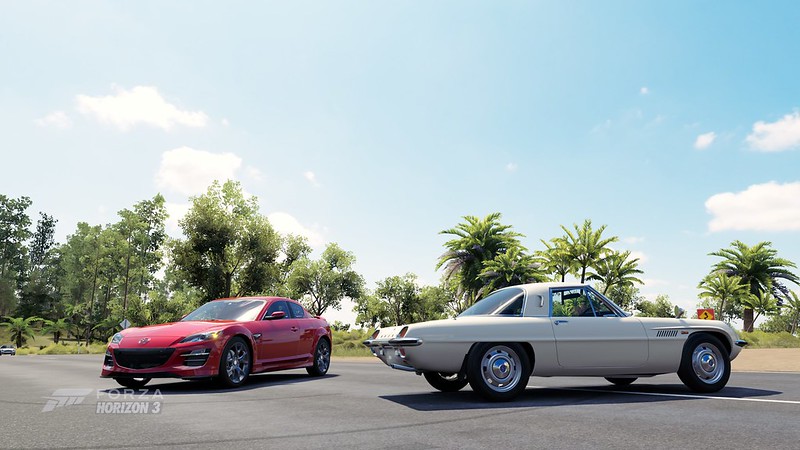

This is a significant thing to do to try out the beginning and the end of Mazda's rotary tales since this is the 50th anniversary of the rotary engine after all, and while Mazda has no plans to revive the rotary engine, not even their awesome concept car persuade us that the resurrection is on sight, speedo boys from all over the world will commemorate this very occasion by sharing stories about how the rotary engine sparked the revolution in the motoring industry and then goes on and on and on and you get the point.
Here in the fantasy Land Down Under that is Forza Horizon 3, these turning points of rotary engine history are here to tell the tale and I drive one of these to see what is like.

Let's start with the beginning of the story, the Mazda Cosmo Sport (also known as the 110S). Launched in 1967, not only this car cemented the popularity of Mazda as a small but influential carmaker, but became consigned to the pages of automotive history because of the rotary engine that became the trump card of Mazda when it comes to stay alive in the globally competitive automotive sector.
When others can't embrace the idea of a rotary engine due to the scratching problems that caused poor seal durability, Mazda is the only carmaker in the world that made the impossible possible with thanks of the idea of employing a graphite-aluminum alloy seal. Not only that, the problems of excessive oil consumption and a lack of low-end torque were taken care of, thus led to the commercialization of cars powered by rotary engines.
Whereas pistons go up and down, the rotaries will go round and round and as a rotary engine, it can suck, squeeze, bang, and blow, procedures that how a rotary engine works and when I take a spin with the Cosmo, the sound of the rotary engine is as true as what they say. It's the engine that goes (pogo sounds) and the Mazda goes (humming). Yeah, you get the point and your gal would definitely love a rotary-powered Mazda more than you, leave you behind, and the sound you'll be hearing is the rotary engine whine.

And now, we get to the end of the rotary-engine tale, the Mazda RX-8. As a replacement to the speedo-boy favorite RX-7 sportscar, the RX-8 went on sale in the spring of 2003 with design inspired by the concept car it was based, not to mention its "freestyle" doors that function like a four-door saloon. The engine, a 654x2cc RENESIS rotary engine, may produce less than the one from the RX-7 but when you take it to a spin, that intoxicating sound of the RENESIS engine, is what keeps speedo boys come alive on the road and coming back for more.
My cousin used to have an RX-8 and he enjoyed it as a daily driver's car that he can take it to work as well as other stuff in his schedule. Now that my cousin currently drives an WRX S4, I repeat the Subaru WRX S4, not STi in case you don't know, rest assured that I'll never forget the moment he got his hands on the car that ended the rotary engine tale.

So, there we are, driving both the Cosmo Sport and the RX-8 is like reading a book from the start to the finish and these turning points of history showed everyone the key reminder of how the rotary engine changed the automotive history forever and if someone asked if there is a future for the rotary engine, don't count on it because as the bosses of Mazda told everyone, they won't be bringing back the rotary engine soon, nor a new rotary-powered sportscar, and they don't care if its the 50th anniversary of the rotary engine this year or Mazda's centennial anniversary in the year 2020.
It's sad but as Mazda, even though they no longer made a rotary-powered sportscar for now, their R&D are working overnight to ensure its imminent revival and thanks to patents reported by motoring sites elsewhere, there's hope in the horizon.
For now, let's honor 50 years of rotary engines, the engine that made it go (pogo sounds) and the Mazda goes (humming).



